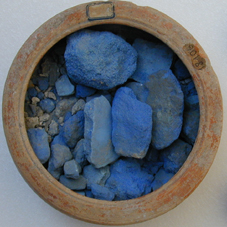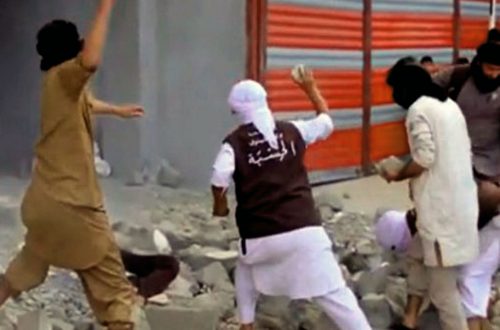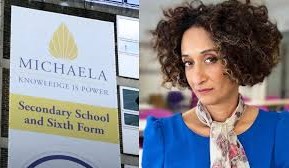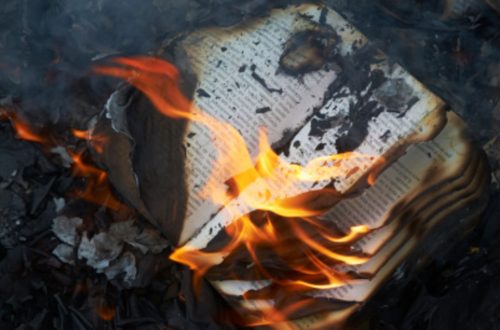Professor Malcolm Grant, the Provost of University College London has announced the make up of the Caldicott Inquiry, “the independent panel set up by the UCL Council to inquire into all matters surrounding the period of Umar Farouk Abdulmutallab’s time as a student at UCL”.
The chair is Dame Fiona Caldicott, who is the past President of the British Association for Counselling and Psychotherapy.
The other members are:
- Dame Sandra Burslem – an educationalist.
- Professor Anthony Finkelstein – an expert in software systems engineering.
- Garry Hart, Baron Hart of Chilton – a former planning solicitor.
- Mr John Worne – Director of Strategy and External Relations, British Council, who “created and delivered new services, built brands and integrated international business acquisitions into one global organisation in marketing, communications and product management roles”.
- Dr Ruth Siddall – a specialist in the fields of Pigment Analysis and Ceramic Petrology.
But surely – I hear you ask – there must be somebody on the UCL Undiebomber Inquiry with some expertise in Islamist political philosophy? Given that it is at least a possibility that there was an ideological component to Abdulmuttalab’s decision to incinerate his pants, surely it would make sense to have somebody on the panel who can authoritatively assess the impact of political theory on this young man’s development?
There is.
Dr Muhammad Abdul Bari, the Secretary General of The Muslim Council of Britain.
Let’s consider his qualifications to be the sole “Islamism” expert on this august panel:
- Chair of the East London Mosque & London Muslim Centre, which recently hosted the jihadist and racist Abdul Rahman al-Sudais.
- This institution has also played host, in person and by video link, to the Al Qaeda cleric who inspired the Undiebomber, Anwar Al Awlaki.
- It also repeatedly hosts fundraisers and meetings with notorious supporters of terrorism and totalitarian theocracy.
- The East London Mosque was, unsurprisingly, frequented by the Undiebomber himself.
- Dr Bari is the past chair of Islamic Forum Europe, a Jamaat-e-Islamic front organisation which was set up by another Muslim Council of Britain activist, Chowdhury Mueen-Uddin. Mueen-Uddin was named by Channel 4 as part of a group that abducted and “disappeared” people during the Bangladesh War on Independence.
- Islamic Forum Europe has a blog, on which senior activist Azad Ali supported jihad, “martyrdom” and the killing of British troops. He sued for defamation when his views were reported, and lost.
- Bari himself is a defender of the jihadist and racist Sheikh Yusuf al Qaradawi, and condemned his exclusion from the United Kingdom as evidence that “the UK government had bowed to Zionist and neo-con pressure”.
- Bari’s deputy on the Muslim Council of Britain, Daud Abdullah, signed the Istanbul Declaration, which supports terrorist attacks, including on “foreign navies” and those who “stand with” Israel. Bari supported Abdullah, in his defiant refusal to withdraw his signature of this jihadist document.
So, what do you think Dr Muhammad Abdul Bari will have to say about the reasons that young Abdulmuttalab became a terrorist?
Actually, we already have a pretty good idea what Bari’s answer will be. This is what he told the Telegraph in 2006:
“But some police officers and sections of the media are demonising Muslims, treating them as if they’re all terrorists — and that encourages other people to do the same.
“If that demonisation continues, then Britain will have to deal with two million Muslim terrorists — 700,000 of them in London,” he said. “If you attack a whole community, it becomes despondent and aggressive.”
Of course, other members of the committee – the planning lawyer, the computer expert, the specialist in pigments – may not agree with Dr Bari’s view that terrorism is caused by the policing of terrorism. And of course, by our “foreign policy”. Perhaps the Caldicott Inquiry will call evidence which investigates the links between the sort of speakers who appear at the East London Mosque, the London Muslim Centre, Muslim Council of Britain events, and the Islamic Forum Europe – some of whom also appeared at UCL ISOC events – and conclude that the open support of violent jihad might have played some role in Abdulmuttalab’s radicalisation.
It might have helped, though, if somebody on the panel had the experience and authority to be able to provide a different perspective on jihadist politics from that of Dr Bari.
The fact that Dr Bari has been appointed to this panel is, in itself, remarkable.
Imagine that this was an inquiry into what caused the wannabe neo Nazi bomber, Neil Lewington, to become a terrorist. Would somebody like Nick Griffin be appointed to help the great and good explore why he did it?
Dr Abdul Bari’s career has demonstrated that he is at the very heart of a politics which is close to the extremist and terrorist political parties, Jamaat-e-Islami and Hamas/Muslim Brotherhood. For decades, he has been an office holder in institutions which have promoted a theocratic and jihadist worldview.
Now, University College London is turning to Bari, to explain why an attendee at his mosque took all that talk of political violence seriously enough to want to visit mass murder on a defenceless civilian population.
That’s the problem in a nutshell, really.



